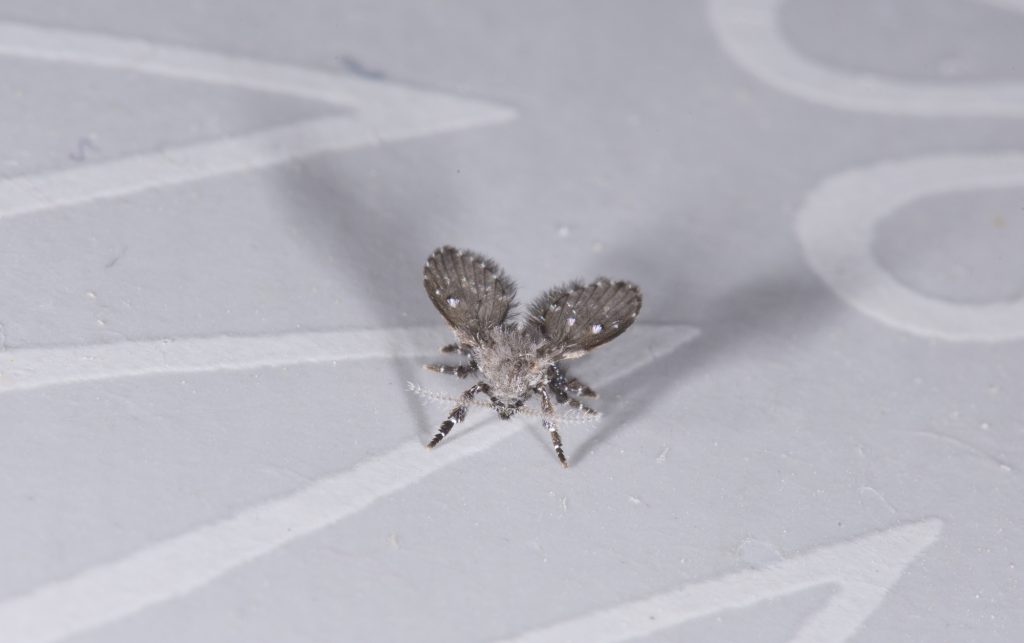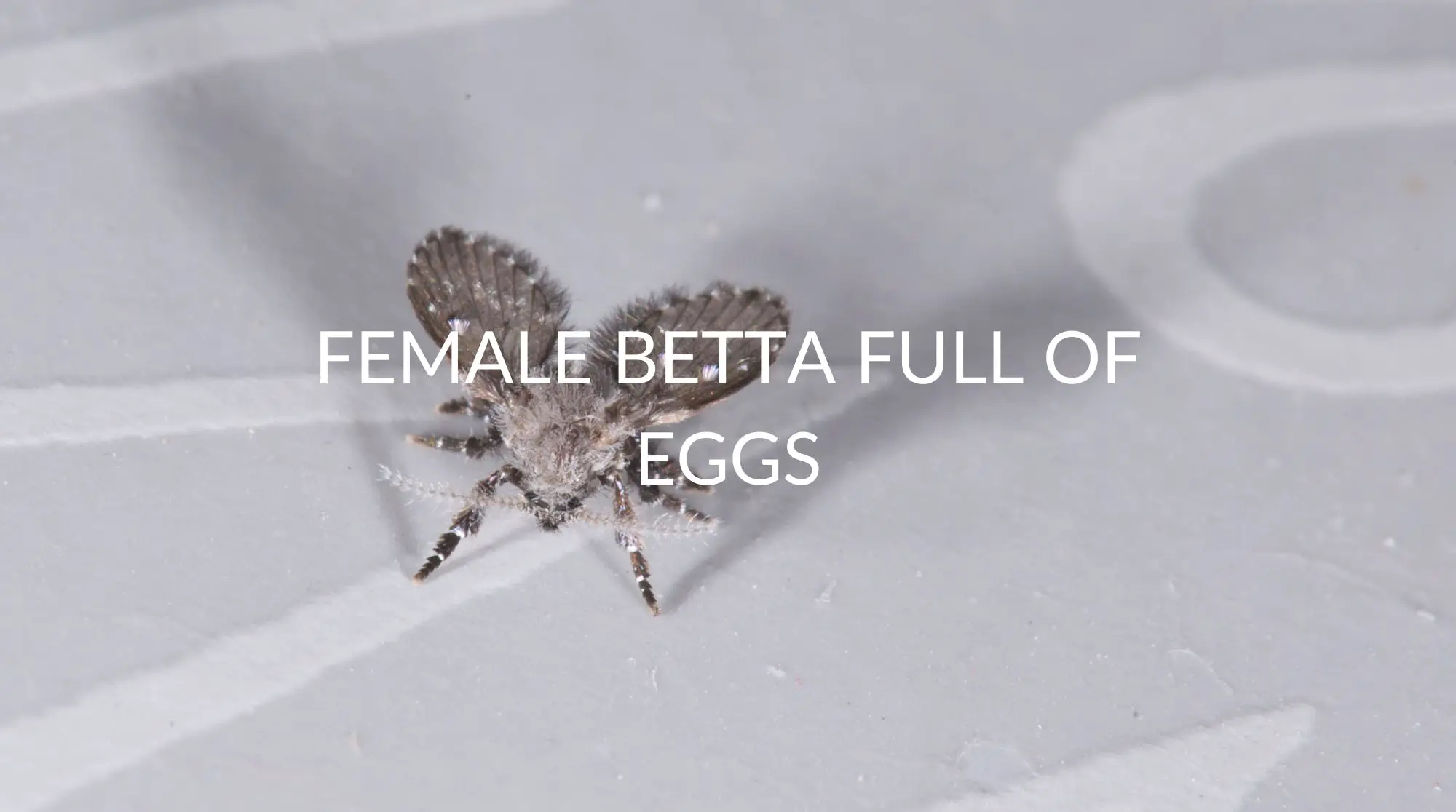Drain flies, otherwise known as moth flies, can be a real pain, and they are a prevalent pest problem in many places around the world. If you’re hoping to be rid of any flies in your home, then you might be wondering, do drain flies die in winter?
Drain flies will usually survive the winter inside of a home, although significantly cold temperatures can slow the growth of their larvae and hinder pupation. They are relatively hardy insects and can withstand some temperature changes, which means that you often need to do a little more than just wait it out if you want them to be gone.
Read ahead in this article to find out how drain flies handle the winter months and whether or not you will need to step in to clear out an infestation.
How Long Do Drain Flies Live?
Overall, drain flies don’t exactly live for very long. Their natural life cycle only lasts for around 21 to 27 days, but this is affected by the temperature. When it is warmer (at around 85 degrees Fahrenheit), drain flies tend to progress through their life cycle more quickly, reaching adulthood and becoming able to reproduce earlier.
When the temperatures are colder, however, drain flies take a little longer to grow. This I why you tend to see fewer drain flies in the winter months when they are not laying eggs and developing as quickly.

The Life Cycle Of A Drain Fly
To understand a little more about these creatures and how they live, we can look at their natural life cycle and the different stages they go through.
Eggs
All drain flies start life in an egg, which the females deposit in groups on moist surfaces. Although they would lay their eggs on wet soil in the wild, the inside of drains can actually be a perfect place for the eggs to survive.
One single mass of eggs usually contains around 15 to 40 individuals, but some can be as large as 100. If a large number survive, it’s easy to see how infestations can quickly get out of hand.
Larvae
After less than two days, the eggs will hatch, and drain fly larvae will emerge. They have a slender shape and are pale in color, looking quite similar to mosquito larvae. This stage of their lives is actually the longest, as drain flies will stay in their larval form for between nine and fifteen days, depending on the temperature.
Pupae
When they progress to the next stage, the drain flies will become pupae. These are more of a yellowy-brown color, and they have a slightly tougher outer skin. Drain flies take around 24 to 48 hours to pupate into adults.
If it is really cold (below 46 degrees Fahrenheit), then the drain flies won’t be able to turn into adults, which will essentially kill them off.
Adults
The adult drain flies are the ones that you actually tend to see, as they will have developed their wings by this stage and started moving around. They don’t have very strong wing muscles, and they tend to hop and jump rather than take longer flights.
Death
Male drain flies emerge as adults before the females, and they will only survive for a few days before dying. The females, however, can live for up to seven days if they have not yet laid any eggs.
Do Drain Flies Die In Winter?
Although you tend to see fewer drain flies around during the winter months, it needs to get pretty cold inside of your drains to actually kill them off. Drain flies are relatively hardy and can survive natural fluctuations in temperature throughout the year.
During the winter months, though, they will take longer to grow and progress through their life stages. This means that you won’t see as many of them, as they cannot reproduce as quickly. The pupae will not be able to become adults if it does get very cold (below 46 degrees Fahrenheit), but it would have to be that cold inside of your drains for that to happen.
Do Drain Flies Hibernate In Winter?
It is not definitively known whether drain flies actually hibernate throughout the winter, although they definitely appear to be less active. It may be that their eggs lay dormant when it is particularly cold and hatch again when it gets warmer.
It is known, however, that the cold weather does affect how quickly drain flies grow and whether or not they can pupate. In the winter, they spend more time in their larval stage, and it can become too cold for them to grow into adults.
Will Drain Flies Go Away On Their Own?
The ideal situation, of course, is to have drain flies disappear on their own. Unfortunately, that is rarely the case. Generally speaking; however, a drain fly infestation is not too much to worry about. They rarely breed in numbers that could cause any harm, and they are not too difficult to clear out.
There are many things that you can pour down the sink to help you get rid of drain flies (like boiling water, a baking soda and vinegar mixture, or a specially formulated drain cleaner), but it is always safest to contact a pest control service.
The best way to ensure they don’t return is to keep your drains as clean and well-maintained as possible so they don’t have anything to feed on.
FAQ
Does Cold Weather Kill Drain Flies?
Cold weather does kill drain flies, but if they make their home inside of your drain, then it is unlikely that they will get cold enough to die off. Usually, the temperatures inside of a building are warm enough for them to survive the winter.
What Temperature Kills Flies?
When temperatures drop below around 46 degrees Fahrenheit (7.7 degrees Celsius), drain flies will start to die. At this temperature, they are not able to pupate into adults.
Are Drain Flies Seasonal?
Although they can survive throughout the year, you do see more drain flies when the temperatures are higher. They can breed outside in the summer months, and they reproduce much more quickly when it is warmer than 85 degrees Fahrenheit (29.5 degrees Celsius).
How Do Drain Flies Survive?
Drain flies survive by eating the build-up on the inside of your pipes. This is why you are much less likely to have a problem with them if your drains are clean and well-maintained.
Recap: Do Drain Flies Die In Winter?
So, do drain flies die in winter? Technically, they can, but the temperatures inside of your drains are usually not cold enough to kill them off. Drain flies will start to die when it is colder than 46 degrees Fahrenheit, which is why they prefer the warmth of your drains during the winter rather than the cold outdoors.
Drain flies will, however, grow more slowly when it is cold, and they won’t reproduce as quickly. This means that you are likely to see fewer flies in the winter months.
Unfortunately, drain flies don’t tend to go away on their own unless your pipes get really cold, so you may need to find another solution if you have an infestation. It is not generally too difficult to get rid of them, and you can prevent them from returning by keeping your drains as clean and fresh as possible.

